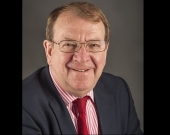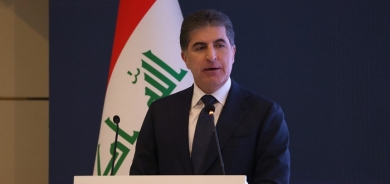Dr. Ian Lustick to Gulan: The US was fighting an unwinnable war in Afghanistan

Dr. Lustick holds the Bess W. Heyman Chair in the Political Science Department of the University of Pennsylvania. He teaches Middle Eastern politics, comparative politics, and computer modeling. He is a recipient of awards from the Carnegie Corporation, the National Science Foundation, the National Endowment for the Humanities, and the Social Sciences Research Council. Before coming to Penn he taught for fifteen years at Dartmouth College and worked for one year in the Department of State. His present research focuses on the implications of the disappearance of the option of a negotiated “two-state solution” to the Israeli-Palestinian conflict and techniques of counterfactual forecasting. He is a past president of the Politics and History Section of the American Political Science Association and of the Association for Israel Studies, and a member of the Council on Foreign Relations. Among his books are Arabs in the Jewish State (1980); For the Land and the Lord (1988, 1994); Unsettled States, Disputed Lands (1993); Trapped in the War on Terror (2006); and Paradigm Lost (2019). In a written interview he answered our questions like the following:
Gulan: What is your overall evaluation of the Mr. Biden’s Administration’s foreign policy regarding the Middle East?
Dr. Ian Lustick: The Biden Administration has been disciplined in its commitment to dealing with domestic issues and an unprecedented political crisis in the United States. This has accelerated a pre-existing trend toward drawing down America’s presence in the world except where challenged directly by an adversary such as China or Russia. With the fading of the War on Terror, catastrophe in Iraq and Syria, the disintegration of Libya, and defeat in Afghanistan, there is no elite or mass appetite in the United States for making sacrifices or taking risks in order to shape Middle Eastern realities.
Gulan: There is believe real or perceived that USA is disengaging from the Middle East, do you agree that this is because this region is less important to the vital interests of America since it has achieved energy self-sufficiency?
Dr. Ian Lustick: In part this is true, but US involvement in the region was never driven solely or even mostly by oil. Consider that America’s strongest and longest commitment has been to Israel, which has no oil and that that relationship has, if anything, put access to energy supplies in the region at risk.
Gulan: As you know there is an enormous trust deficit between US and Iran, but it seems like Mr. Biden’s administration is willing if not saying determined to resume negotiation with Iran, so what are the prerequisites for taking confidence building measures between these two rival countries, at least for revitalizing the nuclear deal?
Dr. Ian Lustick: Following the establishment of the radically authoritarian government in Iran under President Ebrahim Raisi it is unlikely that further US confidence building measures will be forthcoming until the new government in Iran demonstrates it is interested in dealing forthrightly about outstanding issues rather than stonewalling and posturing.
Gulan: Do you see any prospect for Sustained, Strategic U.S.-Iraq Partnership after Joint Statement on the U.S.-Iraq Strategic Dialogue?
Dr. Ian Lustick: I did, but now I am in doubt about its prospects for two reasons. One is the new hardline government in Iran. The other is America’s withdrawal from Afghanistan which reduces its need for an alliance with Iran based on the potentially helpful role Iran can play in that war torn country.
Gulan: How do you evaluate Mr. Biden's decision to withdraw from Afghanistan and the subsequent rapid and dramatic deterioration of the security situation in that country?
Dr. Ian Lustick: I have long forecast a “Saigon moment” in Kabul. The US was fighting an unwinnable war. Afghanistan should have been partitioned into trusteeships linked to bordering countries and local powerholders. There is a slim chance of a stalemate if Kabul doesn’t fall soon, but that will just drag out the agony of failure. Biden’s decision was driven by knowledge of what was coming and a desire to finish the unpleasant business as far ahead of the 2024 Presidential elections as possible.
Gulan: undeniably the Israel-Palestine conflict is one of the most intractable one in the Middle East, and all efforts and initiatives to resolve it have resulted in failure and frustration, so how do you foresee the future of this conflict, especially you have written extensively in this regard, particularity the book entitled " Paradigm Lost from Two-state Solution to One-State Reality?
Dr. Ian Lustick: There will be no negotiated peace to the Israeli-Palestinian problem now that the two-state solution has been rendered impossible by Israel’s effective, if unofficial, incorporation of all the territory and people between the Jordan River and the Mediterranean Sea in to the domain of its political and military power. The struggle will continue, however, but it will, over decades and generations, become a struggle to democratize the country and reach equality between Jews and Arabs. Positive signs include the polarization of opinion among Jews and the increasing political clout of Arab citizens of the country. BDS and similar international campaigns will play crucial roles, but the Palestinians have much work to do to adjust their thinking and strategies to this new reality.
Gulan: The normalization of relations between Israel and some Arab countries was a significant development, in your opinion it was primarily driven by what?
Dr. Ian Lustick: It was driven mainly by the shared interests that non-democratic regimes have in cooperating with one another for security and prestige reasons, but even more directly by the promises that the United States made to each individual Arab country to support particular ambitions that each country had—legitimizing incorporation of the Western Sahara in Morocco, removing the state’s “terrorist” categorization in Sudan, acquiring advanced US warplanes in the UAE, etc.
Gulan: Do you believe that this normalization of relations will be sustainable and contribute to the reduction of the tensions and troubles in the wider region?
Dr. Ian Lustick: I think it will be. The claims that expanding normalization it will support the two-state solution are disingenuous and false, but in the long run the presence of Arab embassies in Israel could help protect Palestinian rights and property in the West Bank, Gaza, and inside “Israel proper.” These inter-authoritarian government deals also maintain stability in these countries, even at the price of human and civil rights. In the case of ending South African apartheid there was a decades long debate over “constructive engagement” to encourage reform and assist those suffering from discrimination vs. boycotts and sanctions to weaken the regime from the outside. That debate is starting now regarding Israel.















